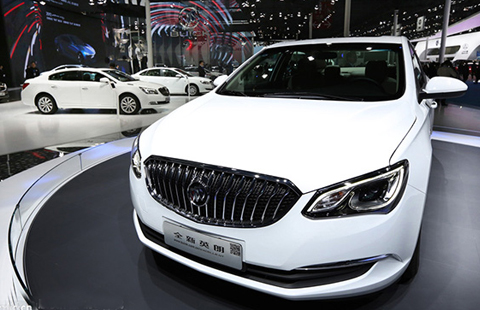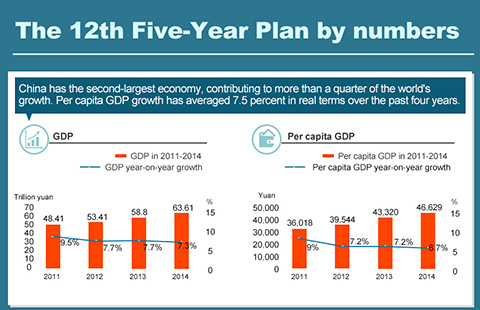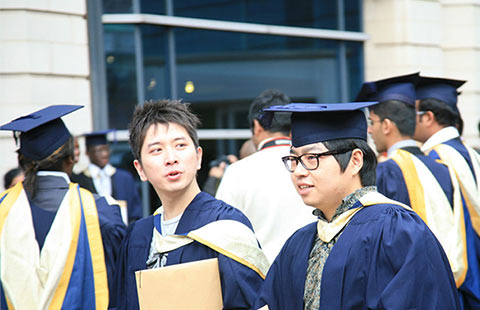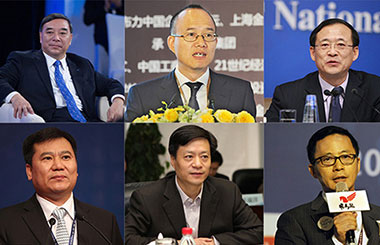Potential for China's economy lies in improved efficiency
By Wang Xiaoguang (chinadaily.com.cn) Updated: 2015-10-27 16:57Over time, these positive changes will transform into new growth engines and new growth points. On the one hand, some of the heavy and chemical industries are at a critical stage to transform themselves by adjusting product structure, eliminating outdated capacity, reducing investments, adjusting and accelerating industrial restructuring, which have achieved some success.
It is worth noting that the government has decided to accelerate industrial restructuring with a global vision. This year, it will make new strides in exporting equipment manufacturing and strengthening international capacity cooperation. It will be of profound strategic significance to ease overcapacity, accelerate industrial restructuring and cultivate international competitive advantages.
On the other hand, new industries, new formats, and new models are emerging and gaining momentum. First, the service sector has witnessed steady growth, playing an increasingly important role in boosting employment and GDP. In the first three quarters of this year, the service sector grew 8.4 percent, 2.4 percentage points faster than the secondary industry. Its added value accounted for 51.4 percent of the total.
Second, high-tech industries are gaining momentum. For instance, new energy vehicles and industrial robots have seen explosive growth. Third, new types of business are taking shape. The government has cut the red tape to encourage people to start their own businesses with more innovation.
These new changes suggest a promising future for the economy. A huge gap remains between urban and rural areas. Narrowing these will unleash tremendous potential for development. The country's new administration is working hard to speed up the urbanization process, promote balanced regional development and unearth the tremendous underlying potential.
In the meantime, there is substantial room for improving both quality and efficiency of economic development. In the past, China's economic growth depended more on resource investments and cheap labor. In the future, however, it will rely more on human resources, innovation, consumption restructuring and industrial upgrading.
One feature of inefficient growth in the past is that growth and profits are consistent. When GDP grows 1 percent, business profits will increase 1 percent, hence the 1:1 ratio. While in the future, when GDP grows 1 percent, profits will increase 1.5 or 2 percent. Therefore, with 6-7 percent of GDP growth, the profit growth is expected to exceed 10 percent. As a result, quality and efficiency will improve amid economic restructuring and upgrading. This is where the greatest potential of China's economy lies.
The author is a researcher at and deputy director of the Department of Policymaking Consultation of the Chinese Academy of Governance. The views do not necessarily reflect those of China Daily.
- Understanding China's 'around 7%' growth target
- Tending farms is a work of green art
- China's 12th Five-Year Plan achievements a milestone for centenary goal
- Reforms pace 'needs to quicken',economists urge
- Fundamentals of China's economy remain unchanged: expert
- Economic growth slows, but with better quality
- Pension funds ready to enter stock market in 2016
- China-Singapore Suzhou Industrial Park targets new reforms
- China's Belt and Road Initiative offers unprecedented chances in Asia
- Yuan usage in S. Korea's trade settlement hits record high in Q3
- ZTE launches new smartphone in Canada
- Beijing relaxes foreign investment rules
- 10 replicas of foreign sites in China
- LeTV to spread its wings in India with smartphones, TVs and cloud computing
















